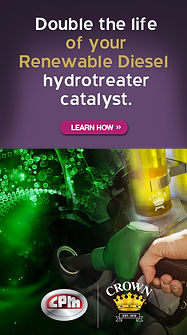- Optimus Technologies
Star Oilco delivers sustainable fuels to Oregon in trucks powered by 100% biodiesel

Optimus Technologies announced June 2 that Star Oilco, one of Oregon’s leading oil and fuel service providers, has achieved massive carbon emission reductions in its heavy-duty fleet operations by implementing Optimus Technologies’ advanced biodiesel fuel technology, the Vector System, in five Class 8 fuel distribution trucks with heavy-haul weight ratings up to 105,000 pounds. The Vector System is a bolt-on engine upgrade that allows these trucks to operate on 100 percent sustainable, renewable biodiesel (B100) to achieve near-zero carbon emissions.
Optimus Technologies’ Vector System is an EPA-compliant, bolt-on, advanced fuel system that upgrades medium- and heavy-duty diesel trucks to run on B100 even in harsh environments and sub-zero temperatures. The Vector System technology is available as a bolt-on upgrade for existing trucks, addressing the significant carbon emissions generated from the nearly 14 million medium- and heavy-duty trucks in use today, and is also available on new truck purchases via ship-thru partnerships.
The Vector System enables fleets to dramatically accelerate the achievement of carbon reduction goals such as those outlined in Oregon’s Executive Order 20-04, introduced by Gov. Kate Brown in March 2020. EO 20-04 directs the state to take action to reduce greenhouse gas (GHG) emissions and states that, “emissions from the transportation sector are the single largest source of GHG emissions in Oregon.” To protect the public health, safety, and economic vitality of the state of Oregon, the goal of EO 20-04 is to facilitate reducing GHG emissions in Oregon to at least 80 percent below 1990 emissions level by 2050.
As one of the largest haulers of biodiesel in Oregon, Star Oilco is committed to sustainability.
“Over the past 85 years, we’ve been passionate and committed to the future of fuel,” said Mark Fitz, owner of Star Oilco. “We wanted to provide low carbon solutions to fleets today that are wrestling with decarbonization, offering the Pacific Northwest fuels that are better for our environment, economy and diesel equipment. Twenty years ago, we pioneered biodiesel being available in Oregon and Washington, and we are ecstatic to get back to running B100 in our own trucks. It just makes sense.”
By implementing the Vector System in its distribution trucks, Star Oilco is already far exceeding the 2050 GHG emission reduction targets—today. Star Oilco is not just setting an example in Oregon, but it is sending a message nationally that cost-effective and easy-to-implement solutions to reduce carbon emissions are available now. Waiting until 2050 to address carbon emissions in heavy-duty vehicles will result in 29 years’ worth of additional GHG accumulation in the atmosphere. Not content to wait on the commercial viability of electrification or hydrogen in heavy-duty applications, Star Oilco is leading the charge toward a sustainable, low-carbon future by using B100 and Optimus Technologies’ Vector System.
Typically derived from recycled cooking oils and waste fats, as well as agricultural byproducts, B100 achieves net-zero carbon emissions due to the biogenic sources from which it is refined. Biodiesel is the nation’s first domestically produced and commercially available advanced biofuel and provides significant engine, environmental and economic benefits. The biodiesel fuel being used and distributed by Star Oilco is locally produced by Renewable Energy Group Inc., North America’s largest producer of biodiesel, at its biorefinery in Aberdeen, Washington—less than 150 miles from Star Oilco’s location in Portland—further reducing the life-cycle carbon footprint of the fuel.
While electrification is commonly perceived as the singular solution to reducing carbon emissions in transportation, in reality, the technology is not yet commercially viable to deploy on the scale needed to achieve significant carbon reductions in the trucking sector. Electric vehicle technology, battery capacity, and long charging times cannot meet the demands of the duty-cycle necessary to efficiently power large vehicles like these fuel-distribution trucks. Diesel technology is essential for these functions, and utilizing 100 percent biodiesel allows for the continued use of the core engine technology and existing refueling station infrastructure, while leveraging the carbon savings of a more sustainable fuel.
“Optimus provides near-zero carbon solutions that are available for emission reductions on any diesel engine today,” said Colin Huwler, CEO of Optimus Technologies. “GHG emissions are a significant global challenge that won’t be solved overnight, but setting targets that are 20 to 30 years away doesn’t align with the urgency in which these problems need to be addressed. We’re excited to partner with Star Oilco to showcase cost-effective solutions exist to reduce carbon emissions immediately. Star Oilco, an 85-year-old family-owned oil company, is demonstrating they are a leader in the global transition to low-carbon fuels and we’re proud that they have selected our technology to support their efforts.”




















-adjusted-to-spec.jpg)



